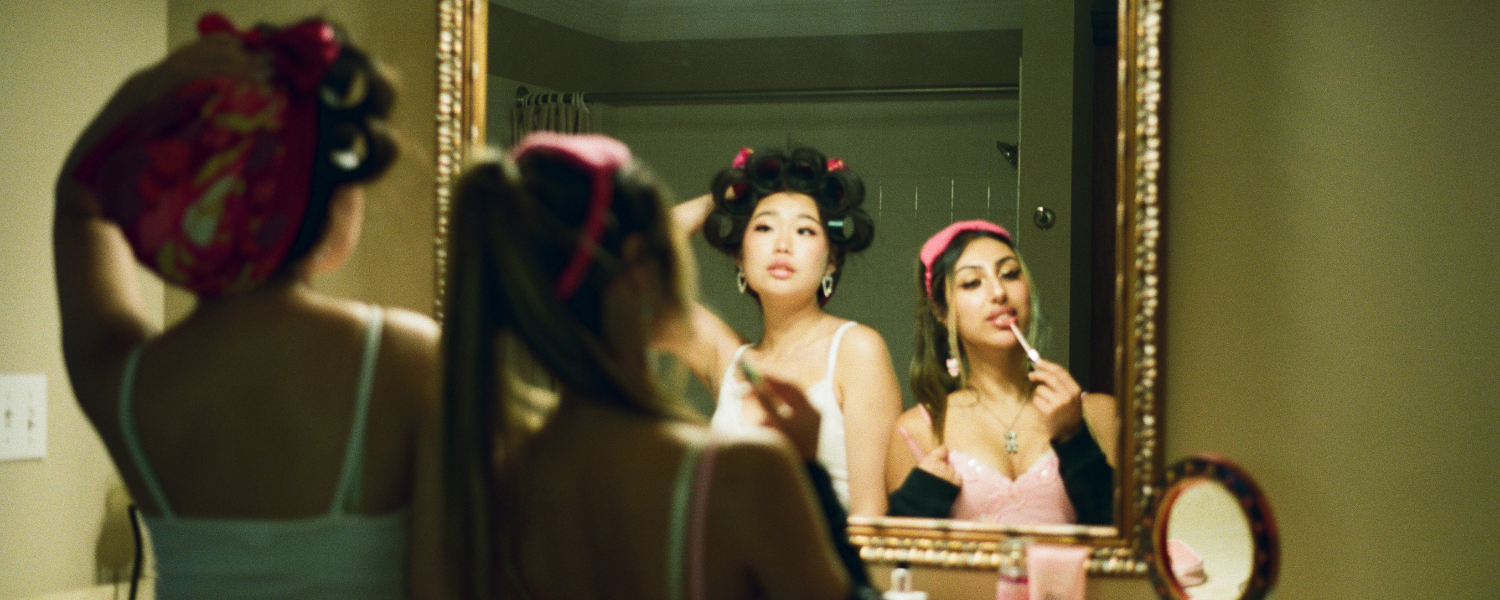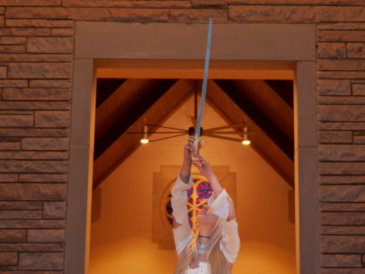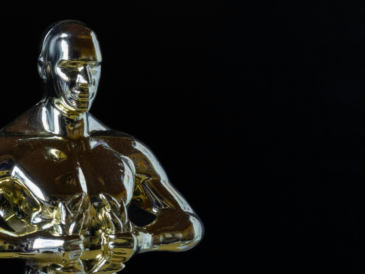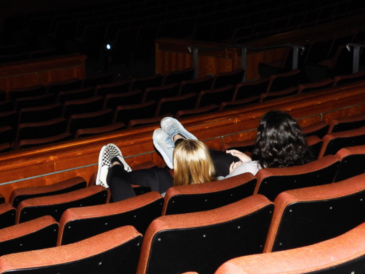Photos taken by Joni Mitchell and Ishma Khattak
An overview of the Barbie movie and its portrayal of women’s experiences
For many women, watching the Barbie movie was a near therapeutic experience. They dressed up en masse to see the movie in theaters, and were met with an in-depth analysis of society's expectations for women, the patriarchy and the overall female experience.
The film quickly addressed how Barbie was meant to empower; she was meant to be a representation of everything a woman could be. Afterall, she was the first non-baby doll. She was a message to young girls that they could be more than just mothers.
Then we get introduced to Barbieland, where everything is perfect for women, and they can be anything they want because all problems of equal rights and sexism have been solved. There are endless possibilities (authors, lawyers, doctors, even a woman president). It’s everything you dream of in girlhood, and that’s because it’s exactly what Barbieland is meant to represent…girlhood.
The bliss and naivety of Barbieland soon becomes short lived when “stereotypical Barbie'' wakes up with flat feet, bad breath and cellulite. She, like the rest of us, gets confronted with her insecurities for the first time as she realizes her body isn’t “perfect” anymore.
Aliah Mahalati, an undergrad who’s double majoring in theatre and political science, felt the scene explains how beauty standards put pressure on young women.
“When girls realize that their bodies naturally start to do things that go against beauty norms (cellulite, weight gain, acne, etc.), and how off putting it can be,” Mahalati said.
After a visit to “weird barbie”, I felt this immense sense that she was familiar, and it was because the weird barbie character encapsulated the experience and history of queer women. Queer women are often pushed to the outskirts of society and are only ever considered “sort of” women because of the difference in their sexuality. They’re also oftentimes the advocates for straight women, on the forefront of the feminist movement becoming leaders for change. They still show love and compassion for the very people who ostracize them because they know exactly what it’s like to be looked down upon and seen as “other” or “less worthy”.

Returning to stereotypical Barbie, she is forced to go on a journey of self-discovery, taking Ken and herself to the real world, where she meets Sasha, Gloria and the CEO of Mattel. Along the way, she learns that instead of helping women the way Barbie was initially intended to, she helped create a dystopia in which “men look at me like an object” and “everyone hates women”.
Like women in the real world, Barbie’s discovery meant that she could never regain the naivety she had in Barbieland (or us in girlhood). The realization of what the real world is truly like snuffs out the spark of who she is and causes everything around her to make her uncomfortable. She is left to grapple with her new reality, becoming overwhelmed by the extreme emotions it’s causing.
For Sarah Cooper, a graduate student in the sociology department, the Barbie movie gave an opportunity for self reflection.
“The movie made me realize how much misogyny I’ve internalized throughout my life. It starts as soon as you’re born,” Cooper said.
And all this time Barbie spends having to reevaluate the entirety of who she thought she was, Ken is discovering patriarchy and its beliefs. He gets completely sucked into it, but instead of creating his own space to excel in, Ken goes back to Barbieland and takes everything the Barbies worked for. He even goes so far as to turn Barbie’s dream house into a “mojo dojo casa house”. And he does all of this without remorse.
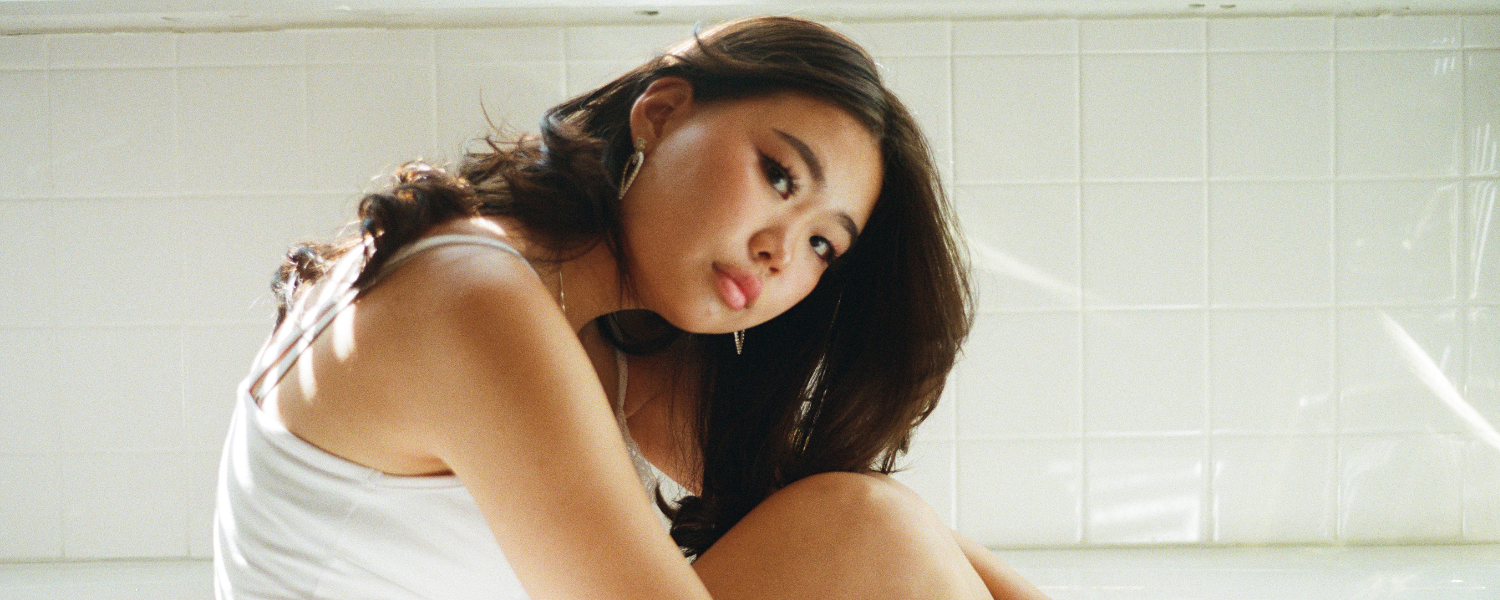
When Barbie returns to Barbieland, she’s faced with the ideas about how we as women must be great at everything because otherwise we’re “not good enough” or we’re “unworthy”, how we should be constantly comparing ourselves to other women, and how society holds such ridiculously conflicting ideas of what a women should be.
Through everything, Ken watches Barbie suffer and question her worth despite his claims that he loves her. It’s not until the Barbies fight back to regain control of Barbieland that Ken sees that his actions have only done harm and that he has pushed Barbie away.
He breaks down crying because all he’s ever wanted was attention and affection from Barbie as he believes that’s all he was made for. And yet, Barbie was still left with the responsibility of encouraging him and emotionally supporting him…even apologizing to him despite the lack of apology for his behavior.
However, Ken still wasn’t the villain of the story. He just captured the perspective of boys shifting into manhood. He starts out kind and gentle, he loves and values Barbie, but he’s got all these feelings and isn’t sure what to do with them. And in his innocence, he feels valued when he experiences patriarchy in the real world.
Even when he destroyed Barbieland, he wasn’t doing it with malicious intent like a man does in the real world. He just didn’t know of any other way to express what he was feeling because he’d learned the ideas from the real world about how men aren’t “supposed” to express their feelings. He can’t be happy until he rejects societal expectations and lives for himself, just like men in our society.
So, the true villain was not Barbie or Ken or even the CEO of Mattel, it was the patriarchal structures that affect men and women, both here in the real world and in the world of Barbie.

